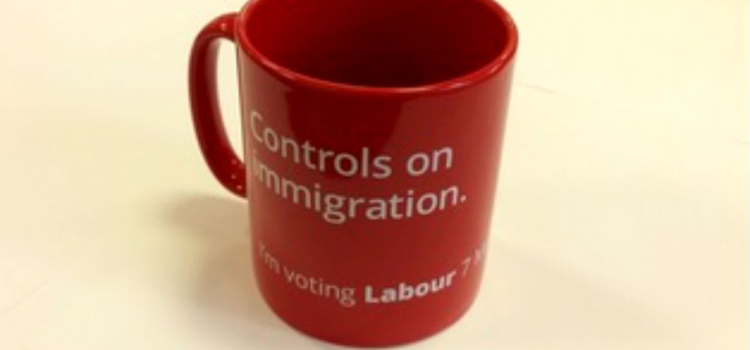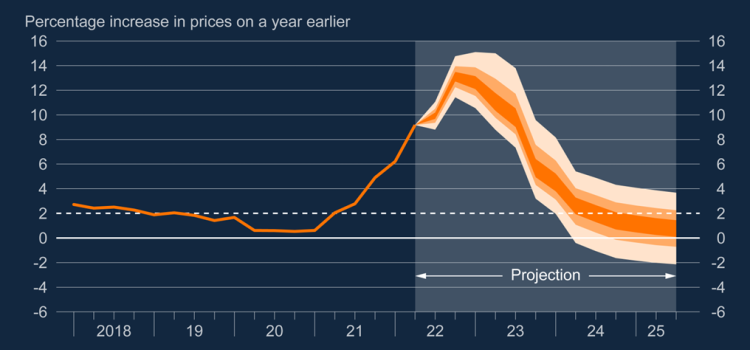My diigo bookmarks are here, links to other feeds are in the page footer, or at my linktree page, …
The GMB & LME

At the GMB Congress, my Region, London, organised a fringe meeting on the “The rise of the far right and worker’s rights“. This was jointly organised with the Labour Movement for Europe who had planned to put their President, Stella Creasy, up to speak. I had originally planned to use the meeting and Congress as a last attempt to get better policy on trade and relations with the EU but the announcement of the election obviously changed this, and meant that Stella could not make it. My speech to the fringe, spoke of workers rights, sovereignty and its constraints and looked at the European Parliament results which has occurred on the previous weekend. You will find below my speech notes, although I did not use them all as I was unable to time the speech in practice and had too cut the speech short. …
New on my linked in blog

I have posted two articles on linkedin, one on Requirements Analysis and its importance in both cyber-security but also in ensuring a project meets its business need, the second is on the skills requirement of a CIO, I emphasise that they need to be good with people. This is not always at the top of the list of qualities that boards look for. …
Labour and pandering to racism

I was published, last week, at Another Europe’s Brexit Watch site with the subtitle, “Labour is lurching to the right on immigration”. What follows below/overleaf mirrors that article, with the deadlines for the National Policy Forum interventions removed, because by the time I made this mirror, the deadlines had passed. The article looks at the Labour front bench’s reticence to speak up for migrants and the refusal to rejoin the EU’s single market, a topic on which Starmer has long term form;it also looks at the tendency to prioritise public finance and competence, over compassion and decency, studies the electoral impact of the position, and suggests what a decent immigration policy would look like. It was originally designed to encourage Labour members to canvass their NPF representatives. See below/over leaf for more, or go to the Another Europe version of the article. … …
The need for truth

I got a lot of posts about Fox vs Dominion in my feeds last night; I am not sure how well this is being covered in the UK. Dominion make voting machines and are suing Fox for $1.6bn because Fox made and repeated damaging allegations about Dominion’s machines performance during the US Presidential elections. Many allege that this was a deliberate attempt to boost Trump’s line that the election had been stolen!
It is clear from leaks, that Fox knew what they were saying lacked evidence at best and that their lawyers had withheld important evidence from the court’s discovery process. The court was due to start today, but the Judge has postponed it by a day; there are rumours that Fox may be seeking a settlement.
In this article, from NPR, they have two spokespeople arguing that the 1st amendment rights of Fox should trump Dominion’s right to a reputation. Do billionaire funded press organisations have the right to lie under freedom of speech rights?
This is important in Europe and the UK too. From my experience in Tallinn, many in Eastern Europe are rightly suspicious of Government regulation of the press, but in the Anglosphere, and possibly in Germany, we have a biased, ultra-rich owned press and I note that journalists are privileged under law. In the UK, the press dominate politics, and are were complicit in the legally flawed Brexit referendum. Somewhere we need to be able to hold the press, and social media platforms accountable to a duty to tell the truth, because,
A lie ain’t a side of a story. It’s just a lie.
Terry Hanning (The Wire)
We should also note that balance can also be the enemy of truth, giving liars equal time with the truth is still publishing the lie. …
Virtual Worlds, Day 2

This is based on my notes taken on Day 2 of the EU’s citizen’s assembly on Virtual Worlds. These have been polished, but are not easy to draw conclusions or a story from, partly because I have tried not to leave anything out, and the participants were not looking to bring their stories and thoughts together. These notes do not tell a story and this article is quite long for me. I hope it has something interesting for you; it talks of the technology, a little bit of economics, social engagement and control and even a little about the changing nature of personality.
This is an excerpt, the full blog is beyond the "Read More" button. ...
Virtual Worlds, an EU citizens assembly
I have been granted Observer status to the EU’s second 2nd Generation citizens’ assembly, this is on Virtual Worlds. I felt my expertise might be useful. The first day (half day), was a plenary session, the final exercise in the afternoon was a brainstorming session in which all the invited citizens joined in. They were asked to identify the three best things and the three worst things, they have observed since 1992, the year the world wide web was invented.

I report and comment on my day below/overleaf … …
Jess Barnard on the NEC Away day

Jess Barnard, one of the Left NEC reps reports on the away day meeting via twitter
The complete thread is available on a threadreader page.
I have made this article and hope to do more which can be followed at https://davelevy.info/tag/jess/feed …
On Musk and Twitter

Elon Musk has taken over twitter; I wrote a short piece on LinkedIn on the deal, its funding, and the technology. Since then some, including the FT (£) have commented on its funding, not the least the bank loans and thus collateral required. The linkedin article and this has some interesting links commenting on the deal, or at least I think so. Also I quote some sources about the fear of the world's town square being owned. For more, use the "Read More" button ...
Inflation

The Bank of England was made ‘independent’ of the Treasury in 1997, although not really, so that it could take the blame for any decisions to increase interest rates, such as those taken earlier this week (£) when the Bank increased bank rate to fight inflation.
How does that work? Inflation is believed to have one of two causes, one is that there is too much demand, chasing too few goods and consumers bid up prices. The other is that import prices are rising and thus have an impact on the domestic price level. These are known as demand-pull, or cost push. The current inflation would seem to be caused by the increase in the cost of imports especially primary energy products, exacerbated by a fall in the exchange rate.
The monetarist theory is that there is a real world and money view of the economy.
i.e.
Prices x Product = Money Supply x Velocity of Money
PQ = Mv
This equation is derived via definitions and algebra and thus there is no proof of causality. Monetarists say that reducing the money supply will reduce prices. This assumes that in the short term both the velocity of money and the amount of product are static. Recent econometric studies suggest that the velocity is not constant, and there has always been a problem of defining what money supply is as it must include some credit and so is very difficult to constrain. We should note that consumer credit can be increased very rapidly so can no longer be consider static.
There can be no doubt from studying economic history, that increasing interest rates to reduce the money supply causes a recession, unemployment and poverty. It’s also highly likely that unionised workers will demand higher wages to defend their living standards. In a world where business is internationally mobile, business will defend its profits by increasing prices and/or off shoring the work; this is the wage-price spiral where an economy has high inflation, both cost push and demand pull and low growth.
The drivers of growth and/or the floor to a recession are investment, exports or government expenditure, especially benefits. Increasing interest rates makes investment and the national debt more expensive. It makes exports cheaper in their foreign markets but of course the big factor in the export price uplift is Brexit. Higher interest rates increases the income on savings and the expense on business and domestic borrowing. A squeeze on profits will cause capital to go overseas, especially if the exchange rate is high although this may be ameliorate by the increasing yield in bonds. The other cause of the economic malaise is the poor investment rates by both the private and public sector in the UK.
There can be no doubt that increasing interest rates will cause unemployment. This is how it reduces demand.
The other option to monetary policy is product supply, direct investment such as the EU’s Horizon Europe programme or price regulation to cause a profit squeeze, tax the energy companies and banks, build more houses, control profits, transfer income from the wealthy to the poor because the poor spend more of their income and of course rejoining the EU’s single market to reduce both import and export frictional costs.
High interest rates are a choice, a choice of theory and a choice of policy. The inconvenient truth is no-one knows if it works.
ooOOOoo
I conclude with some links to key commentators, professional economists. David Blanchflower, writes in the New Statesman, “The Bank of England is recklessly driving the UK into a deep recession”, he warns of the threat of unemployment, elsewhere on his twitter feed he is highly critical of the Bank and its Governor, Andrew Bailey, He is also quoted in a video clip by C4 on twitter, stating that unemployment hurts people more than inflation, which can be seen to be a declining threat. Anne Petifor exposes the role of the global capital markets in ‘managing’ food and energy costs, Richard Murphy provides a modern monetary critique of the theories. I particularly like his calling out of the role of import prices and speculators,
There is a third reason why the BoE policy will not work. It’s not just the assumption that people have too much to spend that the BoE get wrong. They have actually totally failed to identify the proper cause of this inflation.
The inflation we’re suffering is the result of shortages of oil, gas, fertiliser and food, in the main. Some of these are real (food, in particular). Others are being stoked by speculators who are profiting from them, which is why oil companies are declaring such big profits now
Richard Murphy – On Twitter
The featured image has been taken from Blanchflower’s New Statesman article where he asserts its a BoE MPC authored chart. This I assume can e used under the OGL license. …